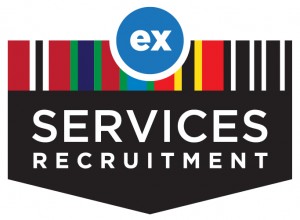Why a Cover Letter is Important
The Cover Letter. It is often one of the most difficult parts of an application. A good cover letter is dependent upon the perfect balance of your ability to sell yourself and a summary of the relevant skills and achievements you have accomplished. Your cover letter is a reflection of who you are and its primary purpose is to define why you are the best candidate for the role.
Your resume, on the other hand, serves as an overview about your employment history, your education, your skill sets as well as other relevant achievements such as certificates etc. In most cases your resume is likely to be the same for each role that you apply.
However your cover letter should be customized for each application. This is your chance to build a connection with the employer and stand out amongst the other applicants. The formatting of your cover letter should be in a narrative business letter. This ensures you focus on the key points of why you are the best candidate. Your cover letter should be succinct but interesting enough for the employer to want to meet you.
Firstly it must be addressed directly to the employer/recruiter, preferably using their name, or at least addressed Sir/Madam. Start off with by introducing yourself and stating the role you have applied for. Talk about why you are a good candidate for the role and then move on to your relevant skills and experiences.
Emphasize why you are different due to your strengths, talents and experiences. This can be your chance to work in other information such as your volunteering experience or your passion for travelling and why it would serve as an asset in the current role which you are applying for.
Never ever include negative information on a cover letter. Be honest but make sure the facts are presented in a diplomatic manner. Specific issues can always be addressed in an interview. If there were any conflicts at the previous employer, talk about it in a tactful manner but never badmouth an employer, as it will only set an example for the possible future.
Be direct in your cover letter, you only have a maximum of a page to talk about why you are the best fit, so avoid rambling in too much detail. Your cover letter also serves as an indication of your critical thinking skills as it shows you can bring together ideas in a relevant manner. It highlights your communication skills and shows that you are a motivated individual who is genuinely putting in effort in your application, thus showing passion for the role.
It is incredibly important to make sure you cover letter has quality content that reflects your true personality. Do not plagiarize your cover letter as if you are called in for an interview and you don’t hold up to the impression, then it is clear that you have ‘cheated’, whether by getting someone else to write your cover letter or by downloading one off the internet.
Your literary skills or written communication may not be the greatest but it pays off to be honest rather than show off. This will only waste the employer’s time and yours as well. A well written cover letter is important but the same rule applies to both written and verbal communication; some people may be able to sell themselves really well but have a poor work ethic, whilst other will be the opposite. This doesn’t mean that you miss out on a chance to prove yourself.
A cover letter is judged how well it is polished, which will be apparent from the typos, spelling mistakes and basic errors in the letter as well. So even if you struggle to sell yourself in writing, make the effort to write a brief cover letter and make sure you edit it well to ensure it is free of mistakes. You never know, this may give you the chance you need to impress the employer in person.
Finally, close your cover letter off with stating you are available for an personal interview, give your contact details and make sure you are available to take calls or answer emails. End with a positive note thanking them for their time. Whether required or not, whether it is read or not, a cover letter will always help your application and may be the difference between a rejection letter or a call for an interview.



